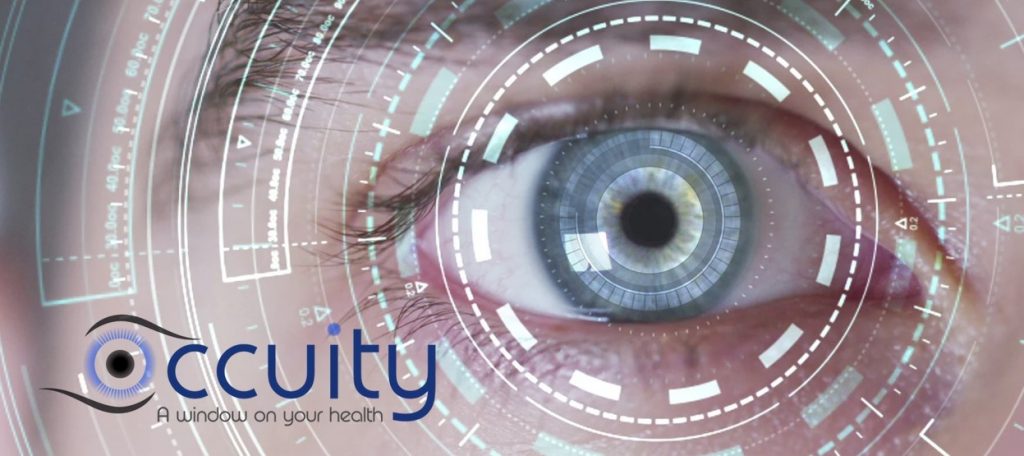This is the first of our new series focusing on sectors gaining interest and investment from angel investors. You can see my review here to get more details. This month we take a look at the rapidly growing medtech market. This is a sector that has been thrust into the spotlight this year due to COVID and a worldwide focus on healthcare. More startups than ever are winning investment and developing solutions to mankind’s most serious problems. In fact it has seen the fastest growth in keyword searches from our investor database. AIN’s Ed Stephens takes a deeper look.

Size of MedTech market
The total global medical technology industry is estimated to be £457bn (Statista)
Number of companies
32,000 medical technology companies in Europe – 95% of which are SMEs.
Description
Medical technologies are products, services or solutions used to save and improve people’s lives. Startups in the sector have products and services to help with prevention, diagnosis and cure.
The three main categories of medical technologies are:
Medical devices (MDs)
Products, services or solutions that prevent, diagnose, monitor, treat and care for human beings by physical means.
In vitro diagnostics (IVDs)
Non-invasive tests to determine the status of one’s health and diagnose illnesses.
Digital health
The new suite of tools as well as services, using information and communication technologies (ICTs) to improve prevention, diagnosis, treatment, monitoring and management of health, both physical and mental and lifestyle.
On the platform
In the past year, searches for biotech on the AIN platform have increased by 97%.
Meanwhile searches for Healthcare/ health have rocketed by 86%.

What are the reasons for its huge success in the past year?
There are three key factors worth examining:
- The impact of the pandemic
Firstly and most obviously, the worldwide pandemic has meant health has been pushed front and centre of people’s minds. When we think of our own well being, we now think of it in a broader sense. The pandemic has also been particularly problematic for those with underlying health conditions, raising a universal awareness of our own personal resilience, immunity and wellness. The pandemic has made us question medical regulation and legislature in a race to develop a vaccine and drugs to treat it. However, it has also made us think more about our general health with a renewed focus on the mental health fallout from months under lockdown. This topic is now a key part of the national conversation too and thus a ‘holistic’ look at health, it’s maintenance and/or deterioration.
- The explosion of big data
This has also been coupled with a rapid and continuous explosion of big data and patient datasets which has of course been a game changer for healthcare/medtech, particularly in the field of preventative medicine. We now know if we are theoretically able to get our hands on a big enough and robust enough data set for a given illness, we can make significant steps towards diagnosing it more effectively (with the caveat that our understanding of the causes isn’t too siloed). By looking at the data of millions of people worldwide with a similar risk profile we can predict someone’s likely susceptibility to that particular disease and develop treatments and solutions that may even be personalised to their demographic or patient profile. Which is another step towards the holy grail of personalised preventative medicine.

- Agile startups
Agile startups are of course helping to drive this market forward, pushing innovation and continually getting the bureaucracies in healthcare to ask if there are new ways of doing things. It has been heartening to see the increased level of interest shown by the NHS in innovation. Their clinical entrepreneurship programme goes from strength to strength and there is talk of a £5m fund to support seedstage medtech companies. In the past routes to market were cumbersome and often controlled by large medtech/pharma companies.
A draw for these startup founders and their investors is the ‘mission’. Clearly there are few greater missions than solving complex healthcare issues. Also embedded within medtech is the idea of global scalability due to the universal nature of human fragility, meaning the rewards for success are considerable. Naturally a continued dialogue needs to be maintained to ensure progress doesn’t come at the expense of ethics but the future’s looking bright in this country for healthcare. We face a unique set of pressures through socialised healthcare that create an environment ripe for technology export.
What types of companies are we seeing developing solutions in this sector?
Key players in the sector focus on either ‘longevity’ solutions, technologies that improve health, nutrition and ‘healthspan’ or solutions to medical diagnosis and downstream disease prevention or cure. Diagnostics companies are being well received on the AIN platform and Onsite health and mental health platforms are also in demand, businesses that typically have a B2B component. With models like this it seems the discussion around physical and mental health is inching ever closer. I haven’t seen anything that has a clear grasp on this yet but there are some interesting recombinations of datasets to explore this. The issue you have in a capitalist environment is companies can often compete in siloes e.g. one company to collect DNA data, one to collect blood samples, another to collect stool samples and the final one to collect patient mental health records. Unless the patient has access to all of these services and has a willingness to allow all the organisations to freely integrate and share data then building up a cohesive picture will remain evasive. One might say we are still in ‘investigatory mode’.

What are investors saying about this as a category?
It excites them but they are naturally wary as it is that much more involved and really does require a degree of specialism that other market sectors don’t. In a winner takes all market you have to be more aware of the competition and the market forces and regulation at play. It has gone from lab based discoveries, pharmaceutical and surgical instruments into the realm of technology, data and AI. As a sector it is enmeshed with the future. This really is the most exciting element for anyone to be involved with – curing mankind’s most fundamental weaknesses. 2020 has brought home our susceptibility and weakness to disease despite our unparalleled technological ascendency. Medical companies battling to come up with vaccines or provide drugs for treatment have become household names.
What are the fundamentals you look for in a med tech business?
The team seems to remain one of the most crucial elements. Investors will look to back the best in a field. Experts ultimately form an essential part of the social proofing of a business and their knowledge is and remains a huge component of the diligence that needs to be undertaken. You need to be able to trust in their domain expertise and real world experience of the problems they are solving. You also ideally want the business to be close to commercialisation – and to have gone through regulatory approval, which is a big barrier to realising potential. Typically early stage medtech investments will carry higher valuations due to the team strength, IP developed and often the value of non-dilutive R&D grants taken on.
case studies
Occuity

Disease screening and diagnostics startup Occuity recently raised £1m and generated huge interest from investors. Occuity’s meters work by shining light into the eye and analysing the return signal. This enables chronic health conditions such as diabetes and Alzheimer’s Disease to be monitored. With hundreds of millions worldwide suffering from diabetes this has huge potential. Crucially in today’s world it can also be delivered at a social distance.
PinPoint

Another hugely exciting company who raised on the platform in the past year is PinPoint. PinPoint has developed a Test that uses AI/Machine Learning to rapidly ‘rule out’ cancer from a simple blood sample, and may be used for all cancer types. The potential for the business is simply enormous. Founder Giles Tully pointed out at the time that PinPoint had already achieved nearly 25% rule out, which in 2019 would have given over 500,000 patients peace of mind in a few days instead of worrying for a few weeks and saved the NHS over £150m.
Hexarad

Another company aiming to support the NHS with a different model is Hexarad. This doctor founded company helps support the severely under resourced radiology sector with access to a mobile team of fully accredited UK NHS consultants.

